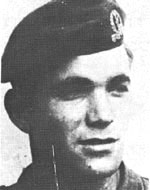Son of Shmuel and Chaya. He was born on October 24, 1946 in Kibbutz Beit Zera in the Jordan Valley. Was a sensitive and sickly child of his youth, and was even mistakenly diagnosed with a Lev defect. So his father, the music buff, instructed him to learn piano strumming – as a substitute for sport and motion games. When the doctors’ mistake was discovered, Shlomo preferred the sport to excellent achievements. He studied at his kibbutz in elementary school and later in high school. He was a bright and pleasant student, but he also knew how to rebel when the teachers could not find a way to his rich and troubled soul. At the age of fourteen he returned to playing the piano and his great love for music was revealed. In high school, he conducted small choirs, composed songs and composed melodies. His artistic desires also found channels in painting and ceramics. He spent the twelfth school year at a seminar for music teachers at the Barnes. Although he did not finish his studies at the seminary, Shlomo refused to postpone his compulsory service. In November 1965 he enlisted and volunteered for a paratroopers’ paratroopers. The good social atmosphere that prevailed in this unit enabled him to withstand the arduous training. He was promoted to the rank of sergeant and was promoted to the rank of sergeant, and the assessment of the commanders stated that Shlomo was a disciplined and disciplined soldier with a high level of performance, and was greatly disappointed in the Six-Day War because his unit was not required to give its share according to its skills and readiness. In the spring of 1968, Shlomo was given three months of special leave to take part in the preparation of the kibbutz’s fortieth day, and he began to work feverishly – composed, orchestrated, and trained singers. They did not detract from him or destroy his self-critical sense of self-criticism, and during that vacation he was called once in a while In the winter of 1969, when he was released from compulsory service, he accepted the request of Hashomer Hatzair, whose kibbutz he belonged to, to help celebrate the anniversary of the movement’s jubilee. His success was connected to Shlomo, and from then on many kibbutzim began to help him perform festive shows, most of them refusing to neglect his permanent work in the kibbutz – in the bananas industry. However, after filling the daily quota, he continued to work in the music field, in the evenings and at night. His exhaustion and the mental tension he was in, gave their mark. Shlomo began to wonder and think heretical thoughts about the political-social path of the kibbutz stream to which he belonged. As usual, reached the conclusion and extreme reactions, to the point of physically disengaging from his beloved home and kibbutz. He moved to Jerusalem and wanted to rehabilitate himself with his own forces. He began his new career as a youth counselor at the Carmit boarding school. His propensity for literature, music, painting and sports, and his personal charm, he liked for his students and earned him the appreciation of the teacher educators. At the same time, he studied at the Rubin Academy of Music in Jerusalem and after a year and a half went to music teaching at the kibbutz school in Ma’aleh Hahamisha, The dark side of the reality of our country, then moved on to manual labor as a metalworker, and soon became a professional in this field, while Shlomo did not neglect his ability to compose songs and organize performances. – deepened and deepened his spiritual world, which is rooted in the cultured house in his kibbutzReading literature, poetry, history and thought. Slowly, his peace of mind and recognition of the justice of his previous path returned to him. He began planning his return to the kibbutz and building his home there. The Yom Kippur War broke a deep rift in his soul. He took part in the battle over the canal passages (in Serfaum) and witnessed all the horrors of this cruel war. But most of all he was struck by the news of the fall of his beloved young brother, Boaz, on the Golan Heights. At the end of the war his request to volunteer for an operational unit was rejected, and he returned to Jerusalem. In the spring of 1974, Shlomo informed his parents of his final decision to return to the kibbutz. Now he was reconciled and reconciled with the values of life and the worldview of the movement he had belonged to since his youth. In the kibbutz he worked in the fishing industry, and in his free time continued to spin his cultural and artistic life. In order to commemorate his brothers and friends, he developed the Garden of the Sons – a corner of Hamed in memory of the fallen. In November 1975, Shlomo went to reserve duty in the south. At the same time, his ill-hearted father lay in a hospital in the center of the country. At the end of the reserve, Shlomo managed to get a seat on the plane to feel his father – but the plane crashed on the 25 th of November 1975. His father, who was unable to withstand the second loss of his sons, broke his Lev – and the two, the father and his son Shlomo, were buried at the same time, on 2 December 1975, in the land of Kibbutz Beit Zera. He was survived by his mother, sister and brother. After they fell they were published by his mouth: a book of songs ‘melancholy and distance’ and a collection of melodies ‘thousand sounds’.
